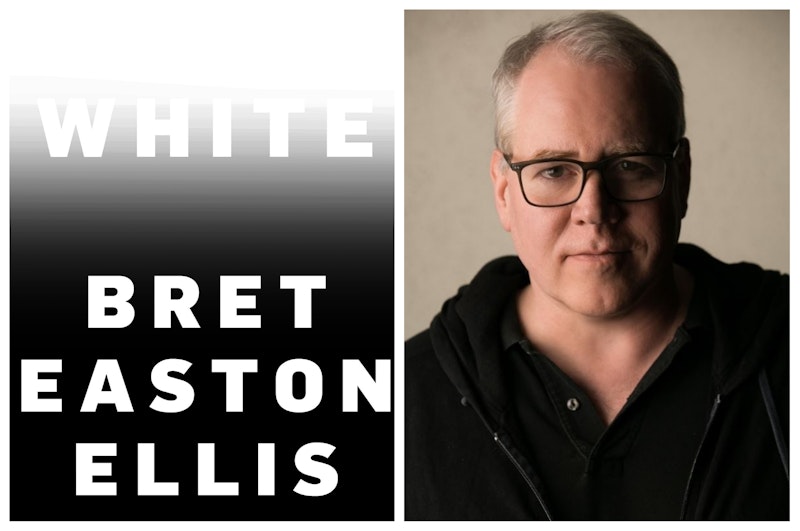In his 2019 book, White, Bret Easton Ellis reflects on his childhood of carelessness and strangely fluid movement through the grittiness of existence. Images are often the most powerful entrance into the unknown, a fragile line between innocence and experience.
Counteracting today’s culture of victimhood (which has continued to unravel since the publication White), Ellis writes about the desire to watch horror movies, and how this childhood endeavor contributed to his development.
Whether it was Harold Robbins’ novels or The Exorcist, Ellis’ generation accepted this without much ado. “We consumed all of this,” writes Ellis, “and none of it ever triggered us—we were never wounded because the darkness and the bad mood of the era was everywhere, and when pessimism was the national language, a badge of hipness and cool. Everything was a scam and everybody was corrupt and we were all being raised on a diet of grit.”
Maybe this “fucked us all up,” writes Ellis, but that’s not as important as another point Ellis makes. His life, as many of our lives prior to the culmination of the digital age, was embodied in ways that are unimaginable now.
Some of us who’ve experienced such physicality of existence miss it, but I don’t think it’s a function of the usual nostalgia and seeing an older face in the mirror. It’s the arresting quality of encounter that’s valued. The concept of atomization wasn’t yet realized, and we weren’t retreating into (digital) geodesic prisons as Julianne Moore did in Todd Haynes’ Safe (1995).
As I read Ellis’ words, I felt connected to his experience. Thousands of miles away in Bosnia (then Yugoslavia) and 10 years or so later, I also had a steady diet of horror movies. I was terrified but that was the point: to push the emotional boundary of the Self, stemming both from instinct and choice.
Much like Ellis, I remember finding a translated paperback copies of Harold Robbins’ 1974 novel, The Pirate and Anaïs Nin’s Delta of Venus on my friend’s parents’ book shelf. We were bored by the war, and looking through books we rarely had interest in before seemed like a good way to pass the time.
The Pirate in particular piqued my interest. This was before the internet so I couldn’t look up what Robbins’ book was about and decide if I wanted to read it. But there was something freeing about the unknowable. You had to take a risk and look.
The difference between my life and Ellis’ is that I was 13 in the midst of war, living my own personal horrors. Harold Robbins was a good antidote to my present reality.
I remember my friend’s older cousin seeing that I was reading The Pirate, looking at me in a suspicious but safe way, and saying, “Aren’t you a little young to be reading that?” I smiled, slightly embarrassed, but stubbornly sticking to my choice of reading material. He looked at me, executing a pause of perfect manly confidence, and said, “Well, you must be beyond your age then.”
Maybe I was but calculations didn’t matter. Life’s moments of alternate and seductively sweet reality were arresting me, which I didn’t want to resist, especially since all I heard were snipers and mortar shells.
It all came down to the ageless fight between Eros and Thanatos. It was the embodiment of the moment that mattered; the embodiment that required letting go of safety and neurosis. It was about going to the edge and seeing whether you can fall. This may not be a positive experience, and it’s not one of moderation. Rather it’s the plunge into the Dionysian immortality, until you realize that you’re mortal.
I wonder what will become of us in this society shaped by atomization, digitization, generalized confusion, and supreme eroslessness.
There is something wholly different today, and much more “fucked up” than the past Ellis describes: a negative fluidity of being that refuses to define existence, and allow itself to be arrested by the unknown. The spirit of discovery has turned into listless faux realism. To turn away from the face of reality is to turn away from joy and suffering.

